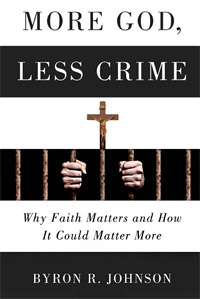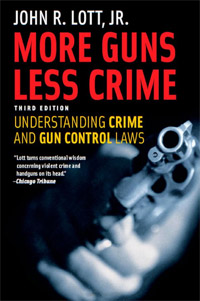January 16, 2012
This interview with Michael Shermer appeared in the magazine ÉPOCA in January 2012. The following is in Portuguese. There is also an English translation. Interview conducted by Peter Moon.
O psicólogo e escritor americano diz que é mais fácil acreditar em esquisitices — como mediunidade, horóscopo e discos voadores – que pensar e questionar
A DIFERENÇA ENTRE UM MÁGICO E UM MÉDIUM É QUE O MÁGICO CONFESSA FAZER TRUQUES, enquanto o paranormal afirma ter poderes que o habilitam a ler pensamentos, prever o futuro ou falar com os mortos. “basta ao médium dizer que tem poderes para as pessoas crerem. Faz parte da natureza humana”, afirma o psicólogo e escritor americano Michael Shermer, de 57 anos, diretor da Sociedade Cética e da revista Skeptic. “Não evoluímos para duvidar ou ter visão crítica. Isso exige educação e reflexão. Crer é mais fácil.” Nesta entrevista, ele fala sobre os temas de seu livro Por que as pessoas acreditam em coisas estranhas (JSN, 384 páginas, R$ 65, publicado agora no Brasil), e ataca a farsa por trás da crença em discos voadores, bruxas, quiromancia e mediunidade.
(continue reading…)
read or write comments about this blof (1)
January 3, 2012

During the last week of 2011, I spoke at and attended a wonderful salon in Santa Fe, New Mexico organized and hosted by Sandy Blakeslee, the brilliant science writer for the New York Times and the author of numerous engaging popular books on neuroscience. Two of the speakers at the salon addressed the topic of the decline of crime, one (Byron Johnson) attributing it to god and the other (John Lott) to guns. Of the two, Lott by far took the day with superior data and better arguments, although for a much wider and deeper analysis of the decline of violence in general I highly recommend Steven Pinker’s The Better Angels of Our Nature: Why Violence Has Declined (Viking, 2011), which I recently reviewed in these pages.

Byron Johnson is a professor at Baylor University and the founding director of the Baylor Institute for Studies of Religion as well as director of the Program on Prosocial Behavior. Acknowledging that he took the title of his book, More God, Less Crime: Why Faith Matters and How It Could Matter More (Templeton Press, 2011) directly from Lott’s book, More Guns, Less Crime: Understanding Crime and Gun Control Laws (University of Chicago Press, 2010), Johnson mostly recounted his experiences working with prisoners in an attempt to lower recidivism rates by increasing religiosity…of the Christian variety, of course. What few data slides he presented harmed his case more than helped it by being either impossible to read (dark, small type) or countering his claim (one slide showed no difference in post-conversion crime rates). Even his anecdotes seemed to gainsay his thesis, as in recounting the story of one man who even after converting to Christianity refused to confess his crime of rape and murder of a young girl until he met her mother on the day of his execution, at which point he broke down and apologized to her. Additional anecdotes and frank admissions by Johnson only worsened his case, such as that many prisoners only convert in order to impress parole boards, and that many of his fellow Christians (he called them “high octane” evangelicals) were only in the game to tally up conversion scores in an environment ripe for the picking. (I routinely receive letters from prisoners who bemoan the constant evangelizing, not only by Christians but by Muslims as well who also see prisons as conversion opportunities. As the Russian comedian Yavak Smirnoff used to joke about performing in the USSR, mixing “captured” for “captive” audiences: “they’re not going anywhere!”) (continue reading…)
Comments Off on More God, Less Crime or More Guns, Less Crime?
December 20, 2011
Foreigners could be forgiven for thinking that America is fast becoming a theocracy. No fewer than three of the remaining Republican candidates (Rick Perry, Rick Santorum, and Michele Bachmann) have declared that they were called by God to run for the country’s highest office. Congress recently voted to renew the country’s motto of “In God We Trust” on nothing less than the coin of the realm. And this year’s Thanksgiving Forum in Iowa (co-sponsored by the National Organization for Marriage) featured most of the major Presidential candidates competing for the title of God’s quarterback.
Rick Santorum, for example, in the course of denouncing Islamic Sharia law, inadvertently endorsed the same as long as it is a Christian on the Judge’s bench: “Unlike Islam, where the higher law and the civil law are the same, in our case, we have civil laws. But our civil laws have to comport with the higher law.” Not content to speak in such circular generalities, Santorum targeted his faith: “As long as abortion is legal—at least according to the Supreme Court—legal in this country, we will never have rest, because that law does not comport with God’s law.” God’s law? That is precisely the argument made by Islamic imams. But Santorum was only getting started. “Gay marriage is wrong. The idea that the only things that the states are prevented from doing are only things specifically established in the Constitution is wrong. … As a president, I will get involved, because the states do not have the right to undermine the basic, fundamental values that hold this country together.” Christian values only, of course. (continue reading…)
Comments Off on E Pluribus Unum for all faiths and for none
December 6, 2011
Has there ever been a time when the political process has been so bipartisan and divisive? Yes, actually, one has only to recall the rancorousness of the Bush-Gore or Bush-Kerry campaigns, harken back to the acrimonious campaigns of Nixon or Johnson, read historical accounts of the political carnage of both pre- and post-Civil War elections, or watch HBO’s John Adams series to relive in full period costuming the bipartite bitterness between the parties of Adams and Jefferson to realize just how myopic is our perspective.
We can go back even further into our ancestral past to understand why the political process is so tribal. But for the business attire donned in the marbled halls of congress we are a scant few steps removed from the bands and tribes of our hunter-gatherer ancestors, and a few more leaps afield from the hominid ancestors roaming together in small bands on the African savannah. There, in those long-gone millennia, were formed the family ties and social bonds that enabled our survival among predators who were faster, stronger, and deadlier than us. Unwavering loyalty to your fellow tribesmen was a signal that they could count on you when needed. Undying friendship with those in your group meant that they would reciprocate when the chips were down. Within-group amity was insurance against the between-group enmity that characterized our ancestral past. As Ben Franklin admonished his fellow revolutionaries, we must all hang together or we will surely hang separately.
In this historical trajectory our group psychology evolved and along with it a propensity for xenophobia—in-group good, out-group bad. Thus it is that members of the other political party are not just wrong—they are evil and dangerous. Stray too far from the dogma of your own party and you risk being perceived as an outsider, an Other we may not be able to trust. Consistency in your beliefs is a signal to your fellow group members that you are not a wishy-washy, Namby Pamby, flip-flopper, and that I can count on you when needed. (continue reading…)
Comments Off on Paleolithic Politics
December 1, 2011
A review of Lisa Randall’s Knocking on Heaven’s Door: How Physics and Scientific Thinking Illuminate the Universe and the Modern World (Ecco, 2011).
LISA RANDALL HAS BEEN JUSTLY APPRAISED by Time magazine as one of the “100 most influential people in the world” for her work in theoretical particle physics. From her position at Harvard University, she often travels: to the European Laboratory for Particle Physics, CERN, in Switzerland, where her theories are being put to the test in the Large Hadron Collider (LHC); to speaking engagements with professional and public audiences about her work in particular and the awe and wonder of science in general; and to rock formations where her chalked fingers can find ways to defy gravity. On the side, she writes popular books, such as her acclaimed Warped Passages1.
In Knocking on Heaven’s Door, Randall picks up the story from where she left off when the LHC was years away from first collision, expanding her horizon from, as she poetically puts it, “what’s so small to you is so large to me” to “what’s so large to you is so small to me.” In other words, the book ranges from the smallest known particles to the entire bubble universe, from 10−35 meters (the Planck length, where quantum gravity rules) to 1027 meters (the entire visible universe, 100 billion light-years across, where dark matter and dark energy dominate), a stunning 62 orders of magnitude. (Randall correctly notes the age of the universe at 13.75 billion years, clarifying her apparently paradoxical figure of 100 billion light-years thusly: “The reason the universe as a whole is bigger than the distance a signal could have traveled given its age is that space itself has expanded.” She unpacks that sentence in the book.) (continue reading…)
read or write comments about this blog (4)




